Google's recent announcement about its Gemini AI accessing personal communications on Android devices is sending shockwaves through the tech community—and for good reason. What started as a promise of enhanced AI assistance has revealed itself as something far more concerning: a fundamental loss of user control over personal data.
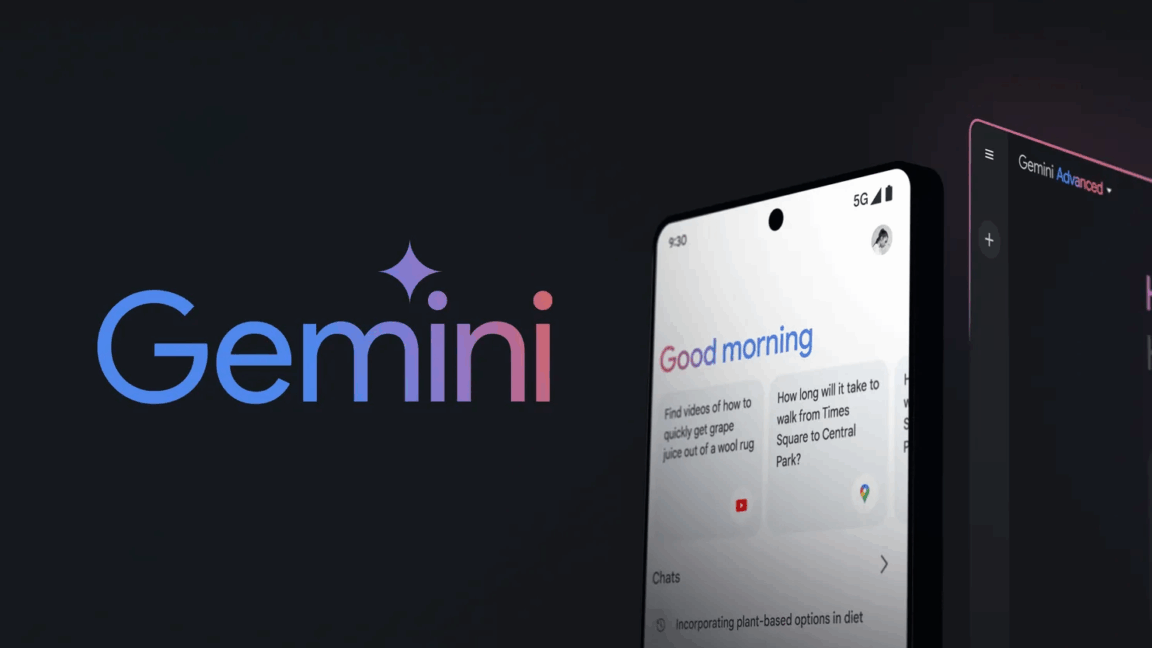
The Gemini Controversy: What Actually Happened#
On July 7, 2025, Google began rolling out a significant update to its Gemini AI that fundamentally changes how the assistant interacts with Android devices. According to emails sent to users, Gemini will now access and analyze data from Phone, Messages, WhatsApp, and Utilities apps—regardless of whether users have disabled "Gemini Apps Activity".
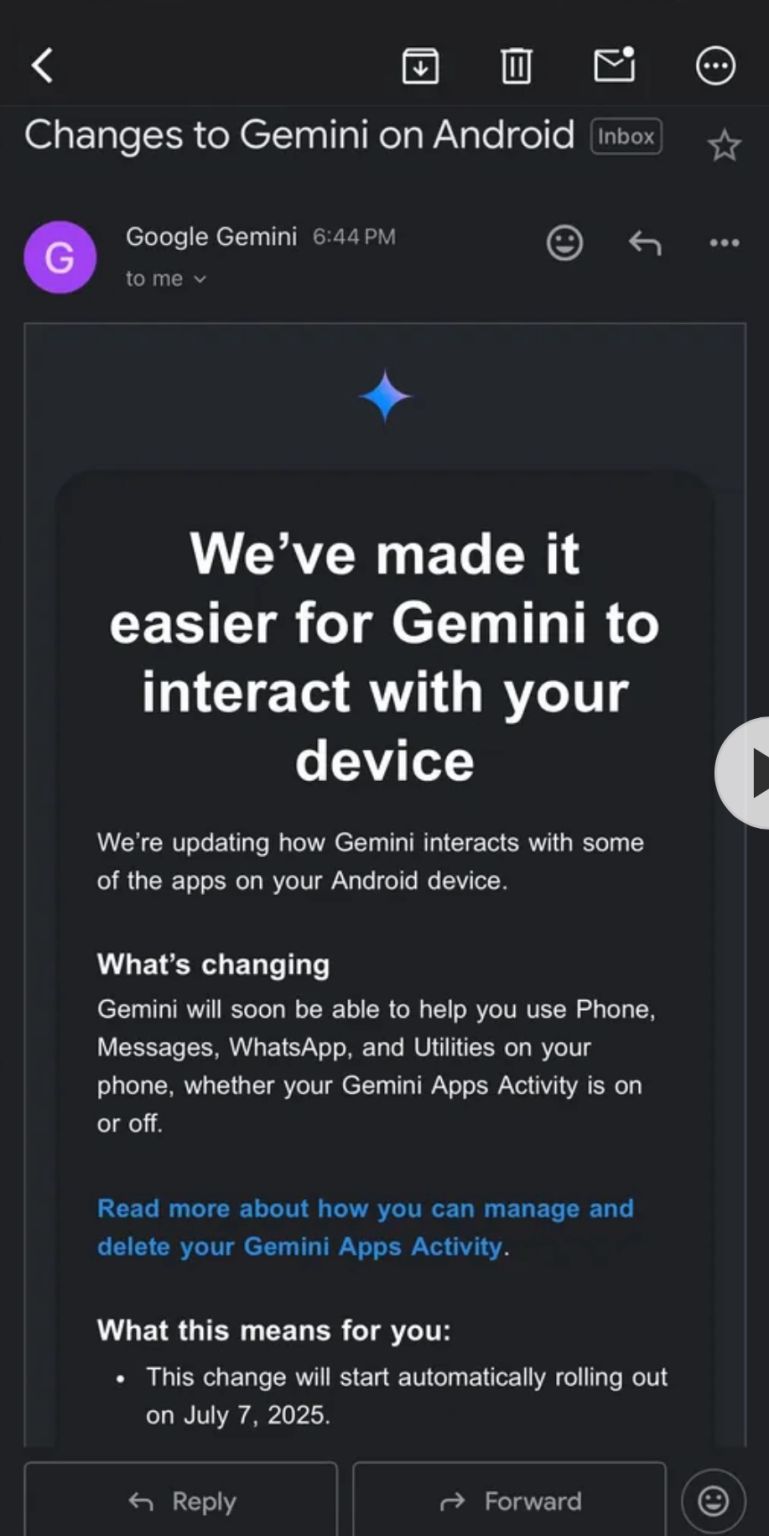
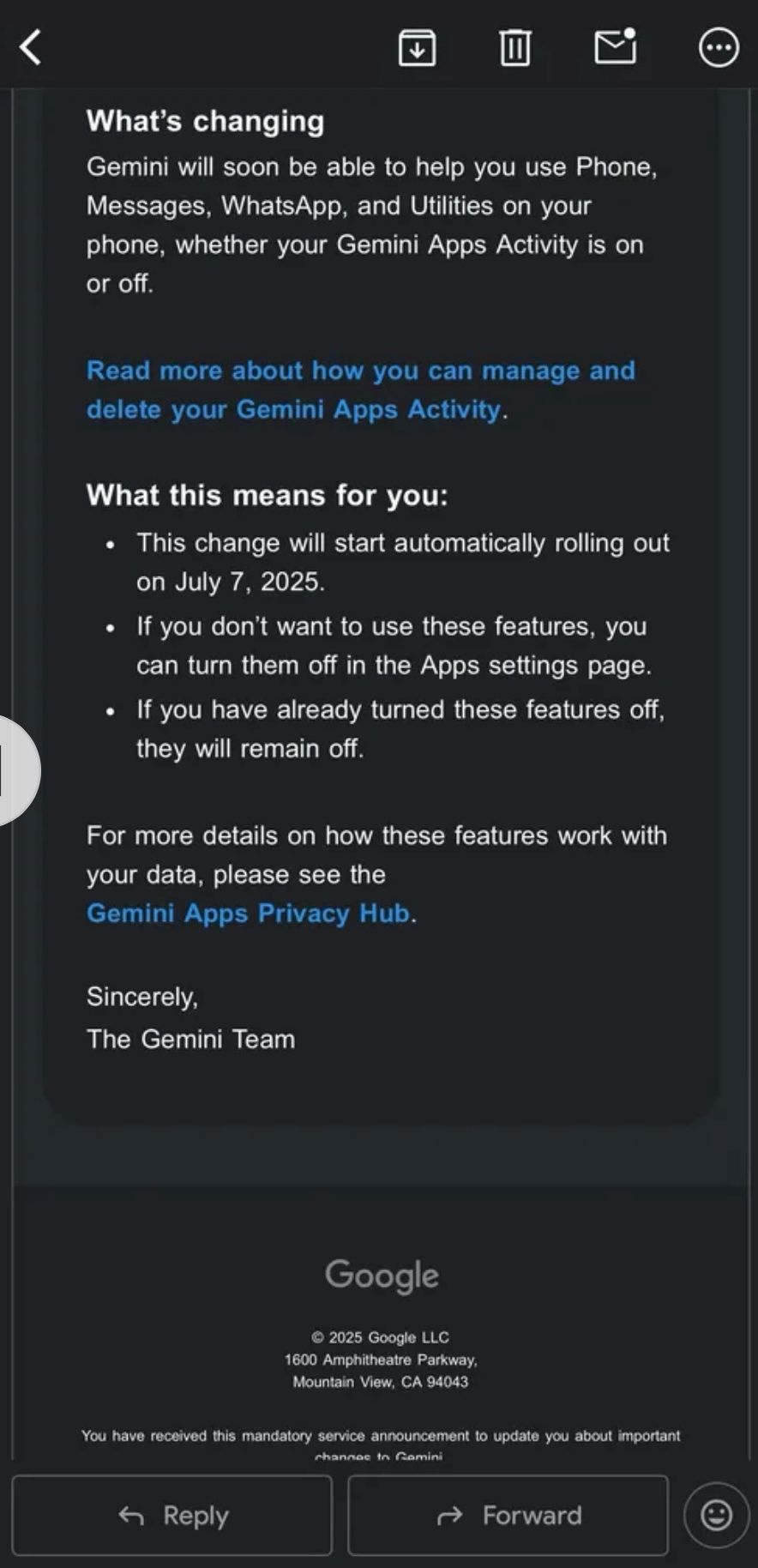
This isn't just an expansion of existing features; it's a deliberate bypass of user preferences. The notification states clearly that this change will occur "whether your Gemini Apps Activity is on or off". Even more, Google buried the opt-out controls in a secondary settings menu that many users won't even know exists.
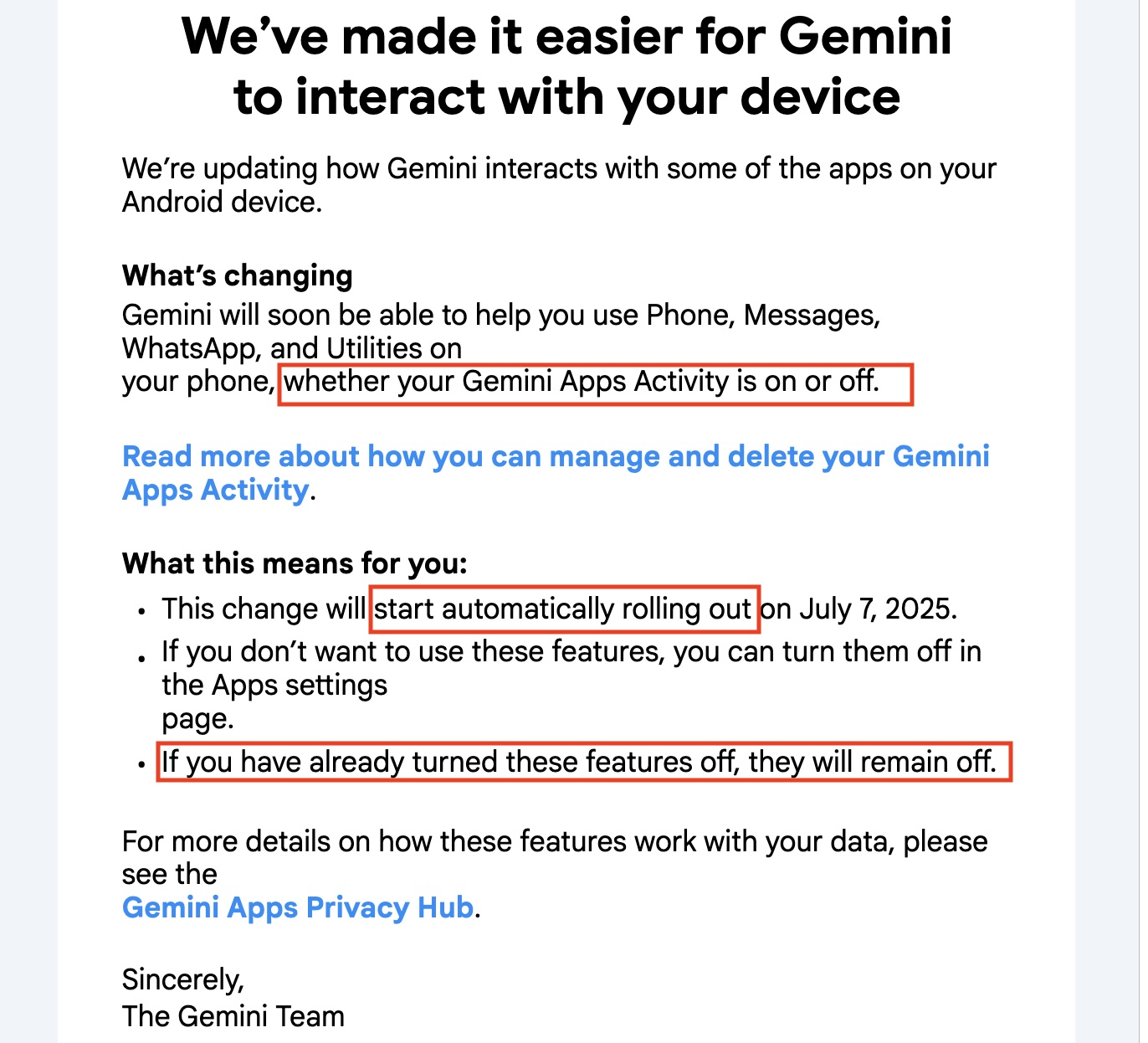
The Technical Reality#
The implementation reveals several areas of not:
- Default opt-in design: All new permissions are enabled by default, even for users who previously disabled tracking
- Hidden controls: Users must navigate to Profile → Apps within the Gemini app to find the new toggles
- Unclear communication: The initial notification provided no clear instructions on how to disable these features
- Scope creep: The AI can now process private communications across multiple messaging platforms simultaneously
Why This Matters: The Broader Privacy Implications#
This move represents more than just another privacy policy update—it's a shift in how tech giants approach user consent. Google is essentially arguing that AI assistance justifies overriding explicit user preferences about data collection.
The implications extend beyond individual privacy:
- Precedent setting: Other tech companies may follow suit with similar "AI-justified" data collection
- Trust erosion: Users who thought they had opted out discover their preferences were ignored
- Regulatory questions: The legality of bypassing user preferences remains unclear in many jurisdictions
The Decentralization Alternative: Why Local Control Matters#
From a user's perspective, this controversy highlights a critical flaw in centralized AI systems: users have no real control over their data once it enters the corporate ecosystem. Even with promises of 72-hour data retention and no human review, the fundamental issue remains—your private communications are being processed by external systems without meaningful consent. But there are alternative ways to protect yourself.
Decentralized identity offers a radically different approach. Instead of trusting companies like Google to handle your data responsibly, decentralized systems put control directly in your hands. You decide what information to share, with whom, and under what circumstances.
The ArcSphere Solution: Native AI Without Compromise#
A great example of this approach is ArcSphere, developed by ArcBlock. ArcSphere demonstrates that powerful AI assistance doesn't require sacrificing privacy. The browser's native AI architecture keeps all users' interactions local to the device, and when accessing the cloud, the only data shared is a decentralized identity address with no PII of any sorts.
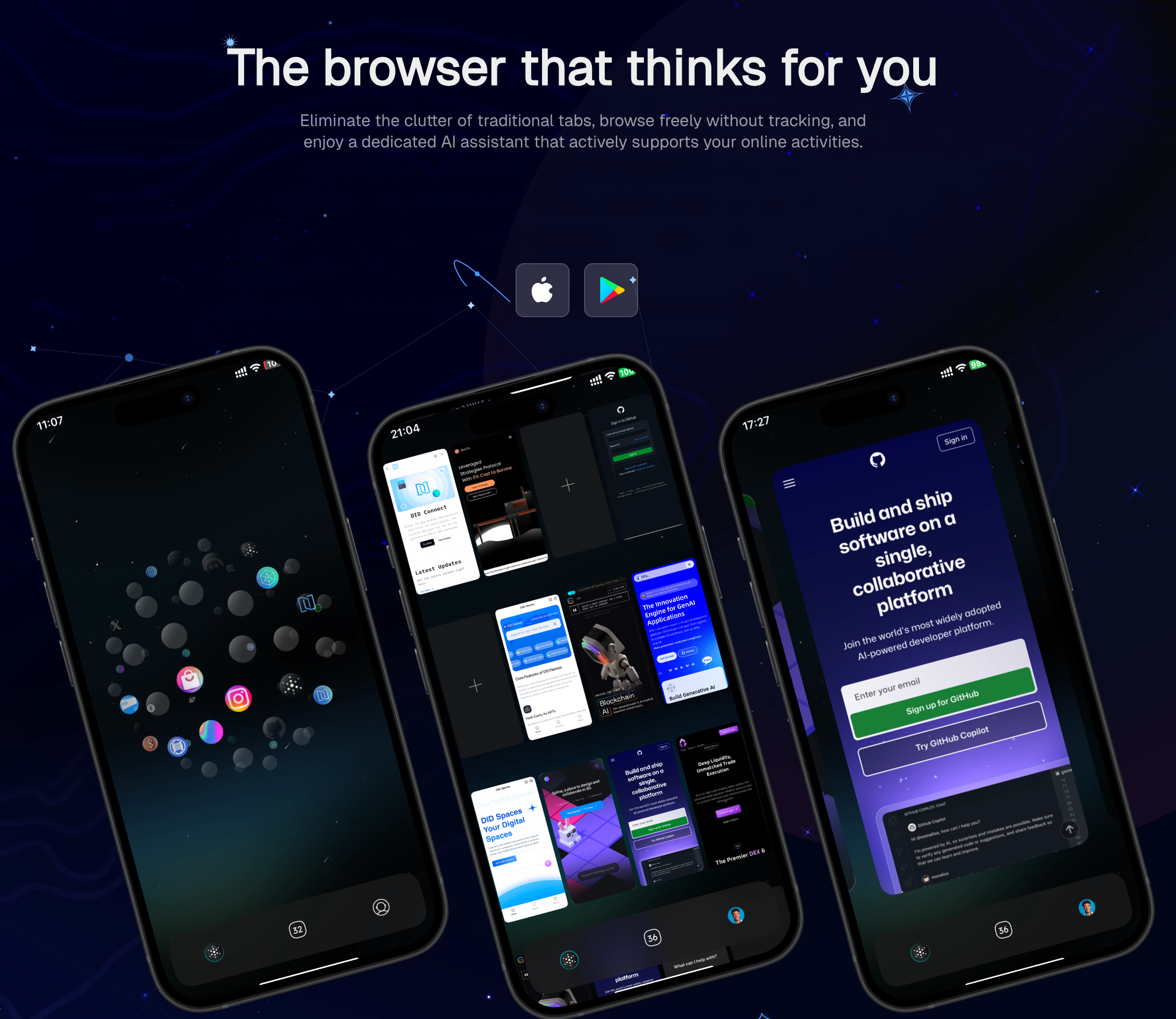
Key advantages of ArcSphere's approach:
Local Processing: The AI companion operates on a users device, ensuring sensitive information never leaves your control. No cloud scanning, no third-party access, no data transmission to corporate servers.
Decentralized Identity: Using cryptographic proofs, ArcSphere allows you to verify your identity and share specific information without exposing unnecessary personal details. You maintain granular control over every piece of data.
True Privacy by Design: Unlike Google's opt-out model, ArcSphere is built from the ground up with privacy as the default. There are no hidden toggles or buried settings—privacy protection is automatic and comprehensive.
No Tracking Architecture: The browser's fundamental design eliminates tracking entirely, creating a browsing experience where your activities remain private by default.

The Stark Contrast: Centralized vs. Decentralized AI#
The difference between Google's approach and ArcSphere's philosophy couldn't be clearer:
Aspect | Google Gemini | ArcSphere |
|---|---|---|
Data Processing | Cloud-based, external servers | Local and cloud-based, no user information shared |
User Control | Opt-out (often bypassed) | Privacy by default |
Data Retention | 72 hours (claimed) | Never leaves device |
Consent Model | Assumed consent for "assistance" | Explicit user control |
Identity Management | Corporate-controlled profiles | User-owned decentralized identity |
Looking Forward: The Future of AI and Privacy#
Google's Gemini controversy serves as a crucial inflection point. We can either accept a future where AI assistance comes at the cost of privacy, or we can require better alternatives that respect user autonomy.
The technology exists today to build powerful AI systems that don't require sacrificing personal privacy. ArcBlock's ArcSphere proves that native AI can deliver a native AI while keeping users in complete control of their data. As more people become aware of the privacy implications of centralized AI systems, tools that prioritize user control will become increasingly valuable.
For Android users concerned about the Gemini changes: Navigate to your Gemini app, go to Profile → Apps, and manually disable access to Phone, Messages, WhatsApp, and Utilities. But remember—this is just a temporary fix for a systemic problem that requires systemic solutions.
The future of AI doesn't have to come at the expense of privacy. It's time we demanded both. Check out the future of AI by visiting www.arcsphere.io.
